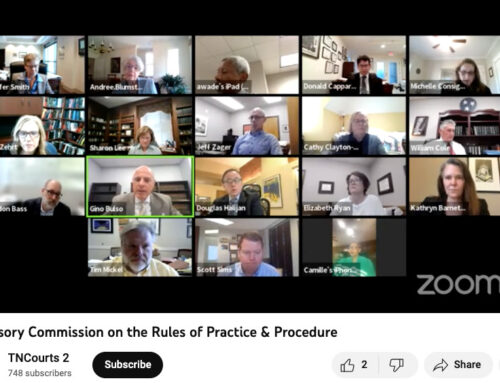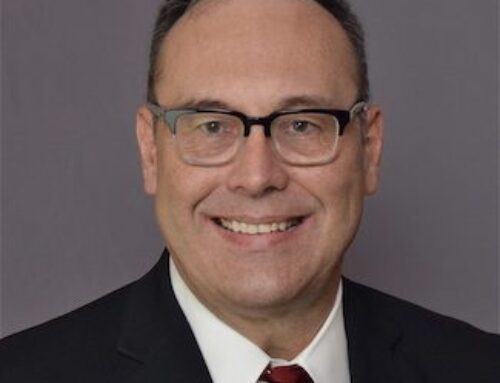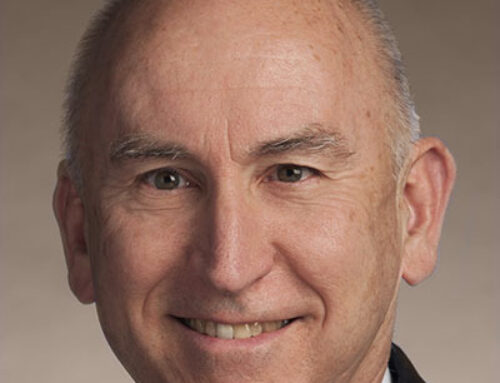The Chattanooga Times Free Press reported in a story that Chattanooga state lawmakers plan to seek an opinion from the Tennessee Attorney General on whether a local publicly funded hospital violated the Tennessee Open Meetings Act when it met privately and discussed bonuses for management staff. And the answer on the hospital’s possible Open Meetings law violation could determine whether they file legislation to remove a special exemption for public hospital boards to meet in closed meetings in certain situations. (See bottom of blog post for an excerpt of the current law on this.)
The Times Free Press story, reported by Kate Belz, is reprinted here, with permission from the newspaper:
The backlash over Erlanger’s Health System awarding bonuses to its top managers appears to be ramping up as local lawmakers ready for the state legislative session.
Hamilton County delegation members said Tuesday they plan to ask the state attorney general whether the public hospital’s trustees violated the open meetings law when they discussed paying out $2.7 million in performance-related bonuses during two closed meetings before they publicly voted on Dec. 4.
And the repercussions could extend beyond the Chattanooga hospital, lawmakers said during a roundtable discussion with Times Free Press reporters and editors.
Delegation members said Erlanger’s decision has now “clouded” their view of Gov. Bill Haslam’s plan to expand Medicaid and also spurred a bill that could remove public hospitals’ special strategic exemption to open meetings law.
Referring to potential political fallout, state Sen. Todd Gardenhire, R-Chattanooga, said the Erlanger payouts “could be the most expensive bonuses anybody has ever gotten.”
Erlanger officials could not be reached for comment by press time on Tuesday. Trustees said earlier the bonuses were earned according to benchmarks set in early 2014. Those benchmarks were not made public until December.
The vote to give bonuses to 99 managers came after a financially turbulent year. The hospital froze vacation time, tightened benefits and phased out pensions and retiree insurance. Then in the spring, the hospital received a $19 million infusion of federal funding after lobbying local, state and federal officials for access to the pool, and ended the year with a profit.
While lawmakers initially celebrated Erlanger’s rebound, they said the incentive payouts left them disillusioned.
“We all have worked diligently these last 18 months to help Erlanger,” said Rep. JoAnne Favors, D-Chattanooga. “We spent a lot of time writing letters, making telephone calls.”
Favors said she was not opposed to “bonuses at the appropriate time,” but said she was chiefly concerned the hospital had awarded them so soon after the federal funding arrived, “before they had made a real profit.”

Rep. Mike Carter, far left, talks about Erlanger making money alongside JoAnne Favors and Todd Gardenhire during the Times Free Press sponsored Legislative Roundtable Tuesday at the newspaper. Photo by Tim Barber/Times Free Press.
Senate President Pro Tempore Bo Watson, R-Hixson, said the action “has certainly clouded one’s view of Medicaid expansion and what those dollars would be used for” at a public or nonprofit hospital like Erlanger.
“Are they going to use it for great patient care? Are they going to use it to pay those who are providing the care for those patients? Or are they going to do it to pay administrative people higher salaries so they can ‘attract the best people?'” said Watson, who prefaced his comments by acknowledging he is a physical therapist with Parkridge Health System, an Erlanger competitor.
Gardenhire has repeated that the chief concern is not the bonuses but the process by which they were decided upon. The vote was a last-minute addition to the agenda and the only discussion took place behind closed doors.
A 2008 law allows public hospitals to discuss strategic plans privately to keep competitors from having an unfair advantage. Erlanger often closes meetings under that law. But lawmakers and a public records experts have said the discussion about the bonuses do not qualify as strategic planning under the law.
After the vote, when lawmakers questioned the legality of the closed-door discussion, board Chairman Donnie Hutcherson called for the payouts to be suspended for a legal review of the process. But after attorneys at the firm of Spears, Moore, Rebman and Williams vetted the process, the board announced the payouts would proceed in two waves.
The “firm informed the Board members that the approval process was appropriate and the action taken by the Board was also appropriate,” Hutcherson said at the time in a news release.
In response, Gardenhire and Rep. Mike Carter, R-Ooltewah, say now they plan to introduce a bill that could remove public meeting exemptions for Erlanger or require a court reporter to keep a verbatim transcript. They say the specifics of such a law will depend on what the attorney general’s opinion says about the bonus vote.
Carter said he has been contacted by other lawmakers concerned about high bonus payouts at government-funded hospitals in their own districts.
“This is not an Erlanger issue,” Carter said. “It’s starting to run rampant.”
Meanwhile, delegation members said any hopes Erlanger had of resurrecting a bill to grant the hospital 501(c)(3) nonprofit status — a bill that was introduced, then dropped last session — are dead.
“I’ve learned my lesson,” Carter said. “If you catch me carrying [such a bill], I need to be in a hospital — but not Erlanger.”
The 109th General Assembly will convene Jan. 15.
The part of the law that allows some closed meetings of public hospital boards is found in T.C.A. 68-11-238 “Marketing strategies and strategic plans — Confidentiality of records — closed meetings.” It says:
(a) Notwithstanding any law to the contrary, hospitals subject to the open meetings laws compiled in title 8, chapter 44, or the public records laws compiled in title 10, chapter 7, may discuss and develop marketing strategies and strategic plans in closed meetings, not open to the public, and the records addressing marketing strategies and strategic plans, including feasibility studies, may be treated as confidential and not public records, but shall be subject to subpoena. Action by the board of the hospital adopting a specific strategy or plan shall be subject to the open meetings laws and the adopted strategy or plan, and the studies that were considered in the adoption of the specific strategy or plan, shall then be subject to the public records laws. The records shall be available for public inspection at least seven (7) days before any vote to adopt such strategy.
(b) Before a meeting of the board of trustees of the hospital shall be closed under this section, the following conditions shall apply:
(1) A quorum of the board shall convene in a public meeting. The presiding officer shall cite or explain to the members and the public assembled the specific legal authority for closing the meeting to the public;
(2) Members of the board shall vote by roll call in the public portion of the meeting on whether closing the meeting to the public is necessary. A simple majority vote of those members of the board in attendance at the meeting shall be required to go into a closed meeting; and
(3) The presiding officer shall explain to the members of the board and any members of the public present at the public portion of the meeting that no other business other than the business described in subsection (a) shall be discussed during the closed meeting.




